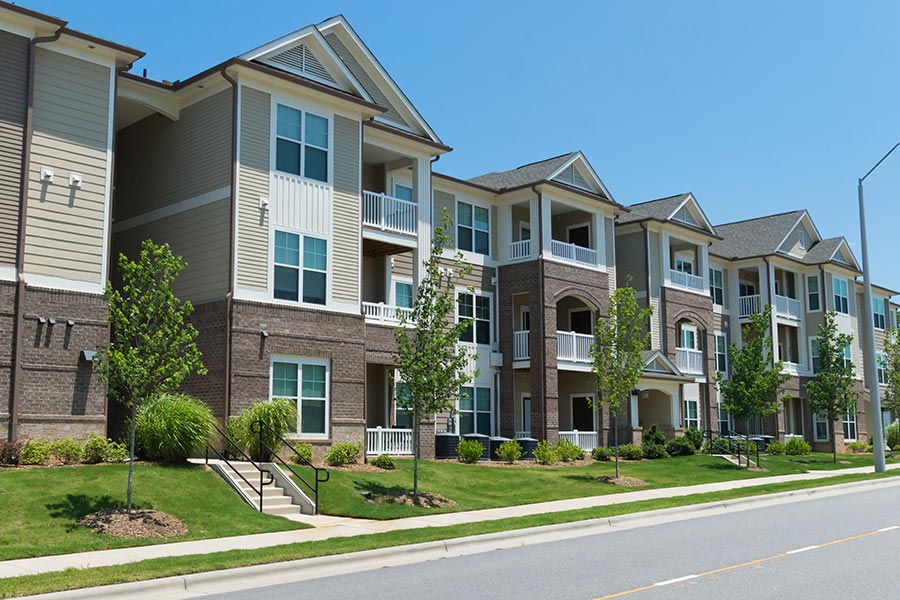Expert Advice on Mastering Affordable Homeownership and Financial Stability
Expert Advice on Mastering Affordable Homeownership and Financial Stability
Blog Article
Economical Homeownership Options for First-Time Homebuyers
As the real estate market continues to evolve, newbie property buyers encounter unique difficulties in safeguarding budget-friendly homeownership options. These initiatives not just assist in homeownership yet additionally foster neighborhood security and economic growth.
Government Aid Programs
Entitlement program programs play a vital function in making homeownership obtainable for numerous people and households. These programs aim to reduce the financial problem connected with buying a home, especially for novice purchasers. By providing financial assistance, gives, and tax obligation motivations, government initiatives assist bridge the gap in between rising real estate expenses and the buying power of prospective home owners.
Different programs are readily available at the government, state, and local degrees. The Federal Housing Management (FHA) provides insurance on financings, enabling lending institutions to supply more positive terms, such as lower down payments and minimized rate of interest rates. In addition, state and city governments frequently have their own campaigns, which might consist of deposit assistance programs, buyer education courses, and desirable home loan terms.
These programs are made to deal with the one-of-a-kind obstacles dealt with by low- to moderate-income households, including limited financial savings and credit report. By cultivating an environment where homeownership is a lot more available, entitlement program programs not just sustain private goals yet additionally contribute to neighborhood security and economic growth. Recognizing and utilizing these resources can dramatically improve the prospects of effective homeownership.
Low-Down-Payment Mortgages
For many ambitious property owners, low-down-payment home loans provide a viable path to homeownership, especially in today's challenging housing market. These home mortgage alternatives typically need deposits varying from 3% to 5%, making it much easier for novice buyers to get in the market without the burden of saving for a substantial deposit.
Numerous loan providers supply low-down-payment programs, including standard fundings backed by Fannie Mae and Freddie Mac, along with government-backed choices like FHA financings. These mortgages are developed to accommodate people with restricted financial savings while still supplying competitive passion prices. Importantly, they enable purchasers to maintain even more money for other important costs, such as moving costs, home inspections, and prospective remodellings.
However, possible home owners must bear in mind the compromises associated with low-down-payment home loans. A smaller deposit may cause greater month-to-month settlements and the need of private home loan insurance (PMI), which protects lenders in case of default. It is critical for newbie purchasers to perform detailed research study and seek advice from with mortgage professionals, guaranteeing they pick a low-down-payment option that straightens with their long-term economic goals.
First-Time Buyer Grants
Many first-time buyers find that gives can significantly relieve the monetary problem of acquiring a home, matching low-down-payment home mortgage choices. These gives, commonly provided by state and charitable organizations or local federal governments, supply monetary help that does not need settlement, making them an eye-catching alternative for those going into the housing market.
Eligibility for first-time buyer grants usually depends upon income, creditworthiness, and the acquisition cost of the home. Several programs are designed to help low- to moderate-income family members, making sure that support reaches those who require it most. The application process commonly includes documents of monetary standing, property Get More Info buyer education training courses, and sometimes also a commitment to remain in the home for a certain duration.
The quantity helpful varies widely, with some gives offering several thousand bucks to aid cover closing prices or down settlements. Looking into available grants in your location is necessary, as programs frequently alter and may have particular needs. By leveraging these funds, first-time buyers can make homeownership extra available, ultimately attaining their desire of having a home while minimizing the initial monetary pressure.
Ingenious Area Initiatives
Innovative community initiatives are playing an essential duty in increasing cost effective homeownership alternatives for homeowners. These initiatives typically entail collaborative efforts between regional governments, non-profit organizations, and economic sector stakeholders to create lasting real estate solutions tailored to neighborhood needs.
One remarkable method is the facility of area land depends on (CLTs), which enable homeowners to acquire homes while the land continues to be had by the trust fund. This design aids keep affordability in time and protects against my review here speculative cost rises. Furthermore, CLTs often give instructional resources and support solutions to encourage first-time property buyers.
Another effective campaign is the advancement of mixed-income real estate jobs, which blend inexpensive systems with market-rate homes. This approach promotes comprehensive communities and lowers the stigma typically associated with low-income real estate. Moreover, local federal governments are increasingly supporting zoning reforms to promote the construction of accessory residence devices (ADUs), which can provide added rental earnings for house owners while enhancing real estate accessibility.

Tips for Budgeting and Saving

Following, establish a dedicated interest-bearing account especially for your future home acquisition. Objective to save a percentage of your earnings constantly, preferably 20% or more, check my source to construct a substantial down payment. Utilize automation devices, such as direct deposit or automatic transfers, to make saving much easier and extra regular.
In addition, take into consideration taking on the 50/30/20 regulation: designate 50% of your earnings to requirements, 30% to wants, and 20% to cost savings and debt repayment - Affordable Homeownership. This method promotes balanced economic wellness

Verdict
In recap, budget friendly homeownership choices for new buyers incorporate various resources such as entitlement program programs, low-down-payment home loans, and gives. These efforts not only assist in entrance into the housing market but also promote community security and financial development. By leveraging these financial devices, individuals can navigate the complexities of homeownership, ultimately contributing to a much more fair real estate landscape. Continued support and understanding of these programs are crucial for enhancing ease of access to homeownership chances.
As the real estate market proceeds to advance, new homebuyers face one-of-a-kind challenges in protecting cost effective homeownership choices. By cultivating a setting where homeownership is much more obtainable, government assistance programs not just support specific aspirations however likewise contribute to neighborhood stability and economic development. By leveraging these monetary resources, newbie buyers can make homeownership more accessible, eventually achieving their dream of having a home while minimizing the initial monetary pressure.
In recap, affordable homeownership options for first-time property buyers include different sources such as federal government aid programs, low-down-payment home loans, and gives. By leveraging these monetary tools, individuals can navigate the complexities of homeownership, ultimately adding to a much more equitable housing landscape.
Report this page